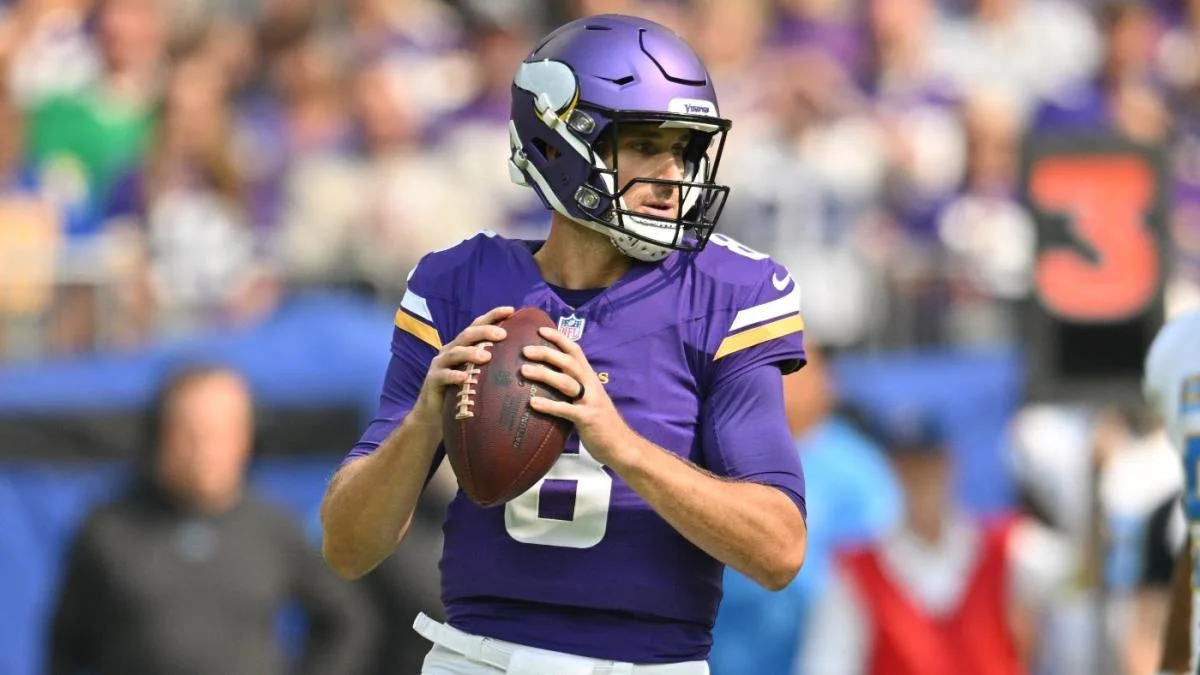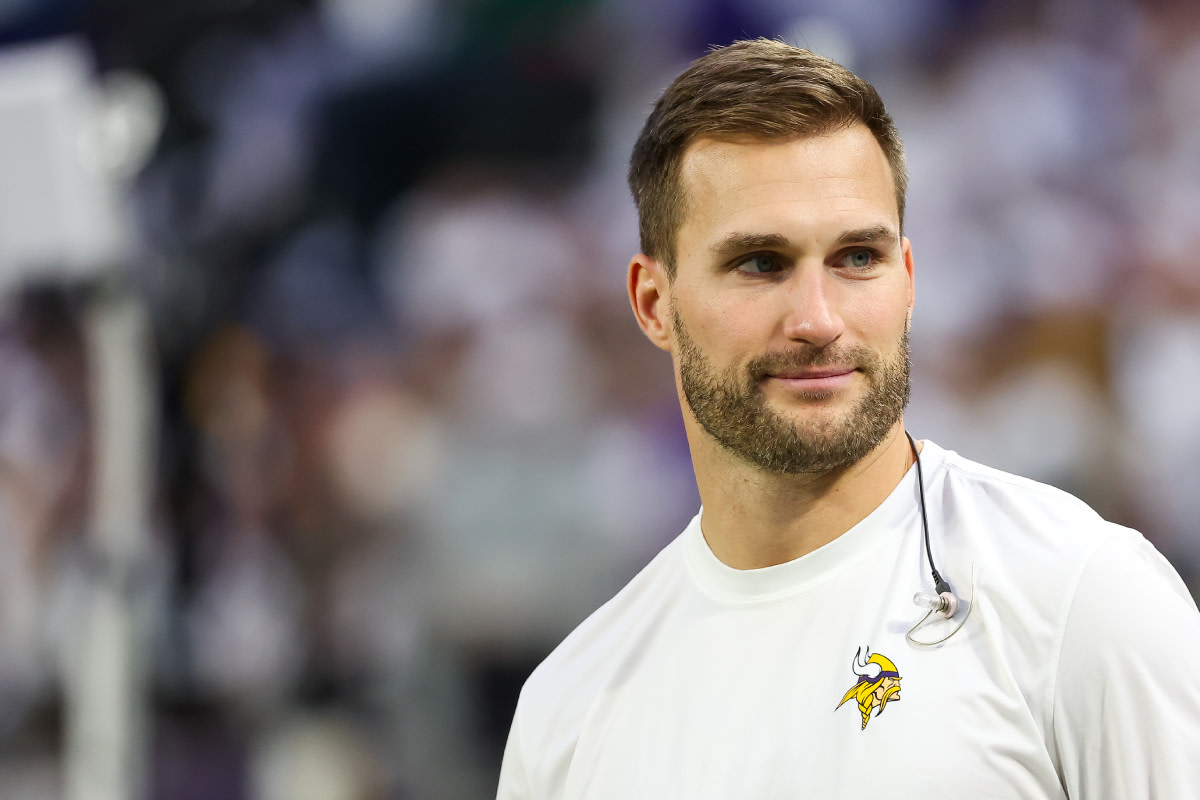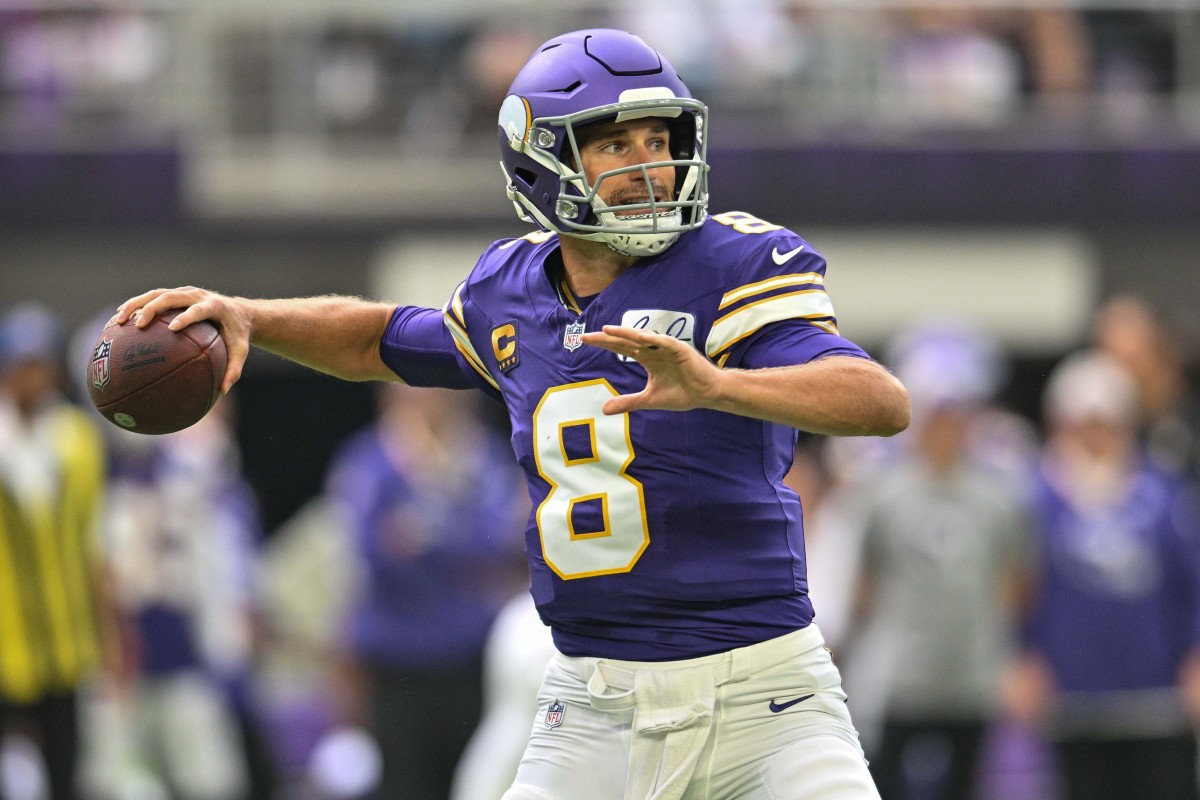The recent saga involving Kirk Cousins and his move from the Minnesota Vikings to the Atlanta Falcons is a prime example of this turbulence. While Cousins’ departure was fueled by the anticipation of being replaced, his arrival in Atlanta hasn’t exactly smoothed the waters either, highlighting the often unpredictable nature of NFL team strategies.

Kirk Cousins’ Controversial Departure and Atlanta Falcons’ Unexpected Draft Choice
Kirk Cousins’ exit from the Vikings was shrouded in speculation and strategic maneuvering. In his final contract year with the Vikings, it became clear that the team was looking to the future, openly considering drafting a potential replacement for him in the 2024 NFL Draft—a decision that ultimately led to picking up J.J. McCarthy.
Cousins, feeling the impending change, opted for a fresh start with the Falcons, who were expected to stabilize their quarterback situation with his experience.
However, the plot thickened when the Falcons, against expectations, selected Michael Penix Jr. in the first round of the draft. This move was a shock not just to Cousins, but to many observers of the sport, including seasoned professionals and dedicated fans. Albert Breer of Sports Illustrated pointed out the irony and the unexpected twist, underlining the unpredictability and often harsh realities of NFL team decisions.

Kirk Cousins in Atlanta Falcons
Despite the initial setback, Atlanta presents Cousins with a unique opportunity. The team is positioned to compete immediately, bolstered by Cousins’ extensive experience and leadership. Furthermore, his family ties to the area—with his wife Julie hailing from nearby Alpharetta—add a personal motivation for his success with the Falcons.
Yet, the selection of Penix introduces a nuanced challenge, echoing Cousins’ earlier career experiences. Famously resilient, Cousins was initially drafted by Washington in the same year they traded up to acquire Robert Griffin III. Despite being overshadowed early on, Cousins emerged as the more successful quarterback.
This resilience and proven track record of handling competitive tension could be exactly what he needs to navigate his new role in Atlanta.
#Colorado QB Shedeur Sanders is projected to be the No. 1 pick in the 2025 NFL Draft according to @draftkings.
The #Falcons will need a successor to Kirk Cousins and eventually Michael Penix Jr.
Could we see Prime Time Jr. in ATL next year? pic.twitter.com/DZtESpqjSb
— Football Forever (@fballforeverhq) April 30, 2024
Atlanta Falcons’ Quest for Stability
The Falcons‘ decision to draft Penix, driven by new head coach Raheem Morris’ insistence on a clear succession plan for the quarterback position, reflects a broader strategy aimed at long-term stability. This approach was notably absent in previous years, as evidenced by the team’s handling of Matt Ryan’s later years and the tumultuous attempts to replace him, which included the brief tenures of Marcus Mariota and Desmond Ridder.

A Balancing Act of Ambition and Realism
For Cousins and the Falcons, the future holds a delicate balance of ambition and realism. The NFL’s relentless pace does not often allow for smooth transitions or sentimental farewells, as Ryan’s recent retirement underscores.
Cousins, with his similar career trajectory and capability, is now tasked not just with leading the Falcons but also with mentoring Penix, preparing the team for a future he may not be a part of.
As the 2024 season approaches, all eyes will be on Cousins and the Falcons to see if they can harness their collective potential and translate it into success on the field. With the best quarterback situation in the NFC South, the team could indeed be on the verge of its best season since 2017. If they can navigate the complexities of their new dynamics, the Falcons might just find themselves flying high once again.










